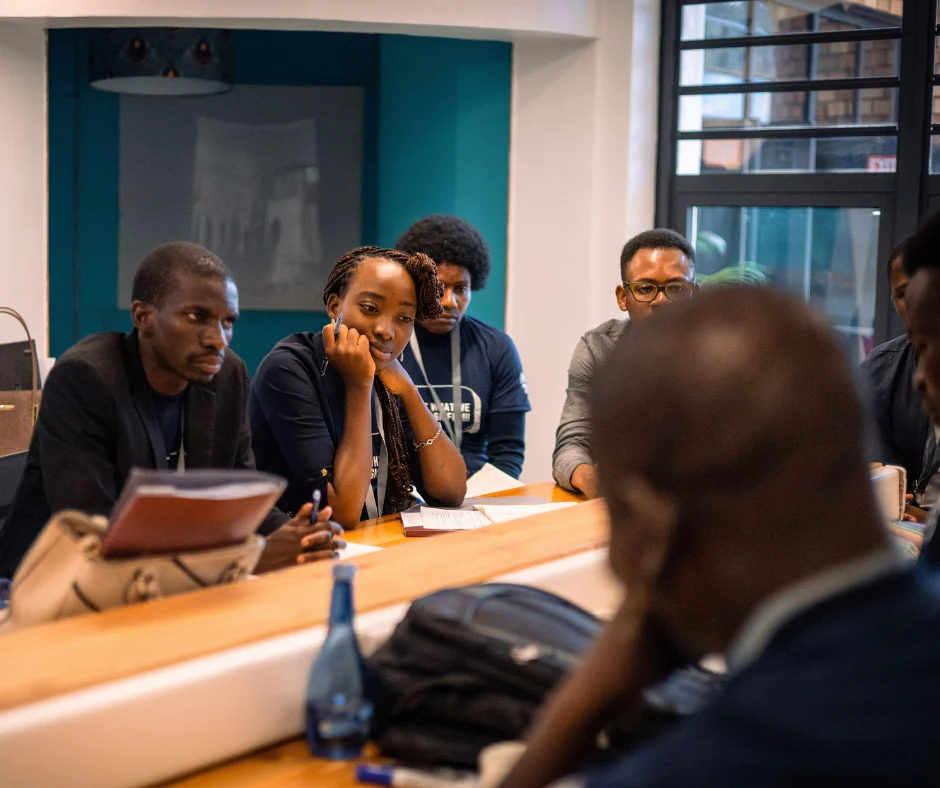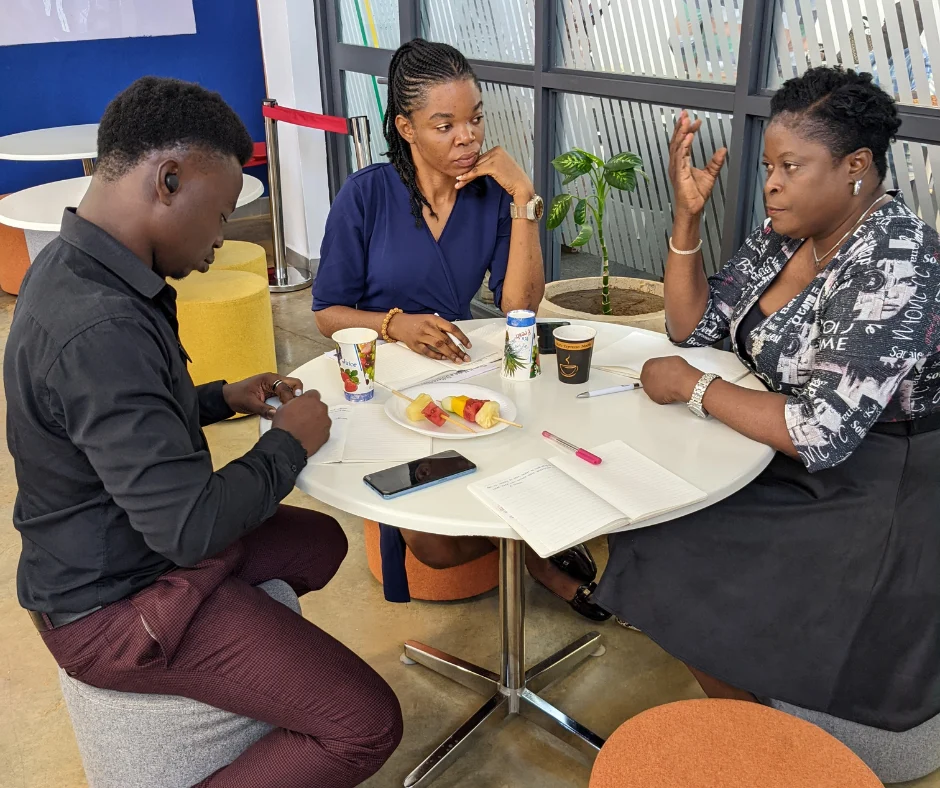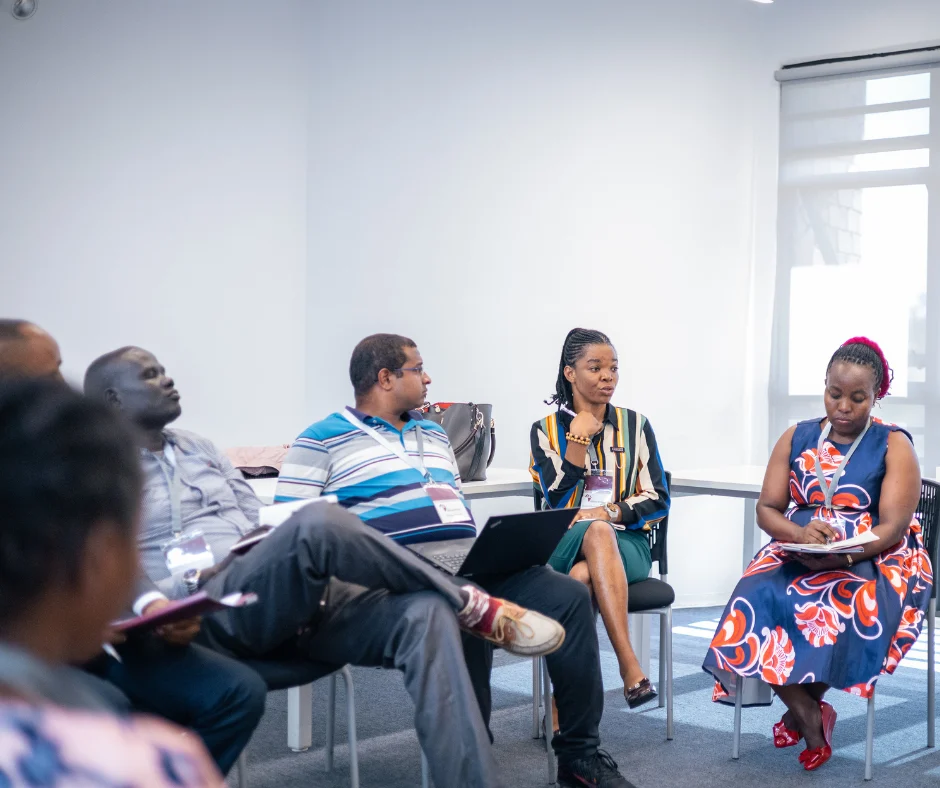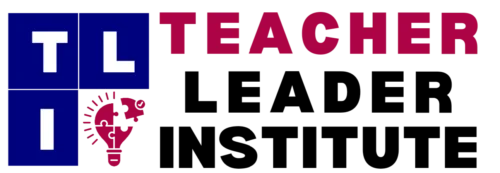What we do
We empower teachers and school leaders through personalised support, tailored professional development, and strategic guidance, sparking meaningful change and ultimately creating better learning experiences for students.


For Teachers
Our work with teachers is our primary focus. Together we engage in a model of reflective practice for professional development which they, in turn, implement with their students for classroom learning. Educational research indicates this model can create ideal conditions for developing the forms of critical thinking and self-direction that we seek for all learners.
We meet teachers where they are, which starts with understanding their needs and context. The immersive classroom partnership with teachers allows us to begin building on their existing competencies and innate capacities and work together for change. We focus on improving instructional practices, through a regimen of study and practice in these areas:
(NOTE: These areas of teacher learning and development describe areas that overlap and are interdependent. What seems redundant or repetitive is purposeful. It allows us multiple points of entry into the basic elements of the Instructional Core (Elmore, R. (2008). Improving the Instructional Core. Draft Manuscript.) )
For Teachers
Lasting and effective learning, for both students and teachers, depends on feedback which can be leveraged toward increasing competence and self-direction. Teachers working with us train in assessment practices which:
- give students increasing control AS leaders of their own learning,
- provide teachers with the necessary feedback FOR them to better address student needs and meet the best kinds of learning outcomes, and
- offer parents and the community clear and useful evidence OF continuous improvement and achievement of school goals.
Effective teaching, aiming to achieve high expectations for ALL students, begins with careful planning long before a teacher walks into the classroom. We provide a model of reverse design that begins with a clear description of what students are expected to achieve and then builds a pathway of rich and engaging activities, differentiated to meet the needs of all students and emphasising increased student agency as self-directed learners.
The effective teacher does not wait until a final exam or assignment to determine the quality of student learning but collects data regularly to assess progress and determine what must be done to ensure ALL students meet learning goals. We help teachers develop the tools and habits of reflective practice in a focused process of assessment FOR learning.
Decades of research in the learning sciences has clearly demonstrated that deep and effective learning is the result of learners engaged in the active construction of knowledge in collaboration with other learners. Inquiry-driven or problem-based learning is the most effective model for facilitating this form of deep learning. We help teachers plan and deliver this kind of learning in their classrooms. Too often, professional development addresses planning without supporting the role of teachers in facilitating this mode of learning in the classroom. We address the critical need for teachers to redefine their role in the inquiring classroom and coach them in developing the skills to be effective facilitators.
School learning at its best helps students develop the skills, knowledge and dispositions associated with the disciplines that define humanity’s greatest accomplishments - such as history, literature, mathematics, science, and the visual and performing arts. We help teachers reimagine the curriculum and plan for engaging instruction working toward building disciplinary competencies. In maths, for example, mathematical reasoning becomes the goal for learning, which gives meaning to the computational skills we ask students to develop while simultaneously developing problem-solving skills that have value beyond the maths class. We help teachers plan and deliver authentic instruction in the subject areas that they teach.
Too often, educators aim low, teaching to standardised tests that generally represent minimum standards of competency in school subjects. While the responsibility certainly rests with teachers to move all students towards success in these kinds of tests, we help teachers set and meet higher goals for their students. High expectation begins with instructional design, but depends on a shift in student-teacher relational dynamics for those designs to bear fruit. We help teachers move beyond standard models of recitation and rote learning by coaching them in developing new identities as facilitators of learning, in which they become partners to student learning processes that allow them to raise expectations AND help students go beyond the standard curriculum to develop their full potential.
Research has established that learning emerges from focused interactions between students as a community of learners. Classroom discussions ONLY become high-leverage instruction when teachers moderate by setting clear tasks and engaging in the forms of questioning that move student talk towards desired outcomes, while prioritising student ideas in conversation with each other and the content to be learned. We help teachers plan for and facilitate these interactions, recognizing that skilful moderation is necessary to guide student interactions towards deeper learning.
A key challenge in teaching academic subjects is the emphasis on thinking skills and dispositions, building knowledge that can be applied to problem-solving. What is to be developed is within the minds of the learners. In sports, students and teachers can easily see what is working and what is not. The model for growth is visible. We work with teachers on models of instruction that make the thinking visible to students as forms of deliberate practice, while simultaneously making student thinking visible to teachers so they can guide and coach development effectively.
The relationships of teacher-to-student, student-to-student, student-to-subject, and teacher-to-subject are the basis for all classroom learning. These relational dynamics are complex and fundamental to all the other areas of teacher learning provided in this list. No aspect of teaching is independent of these dynamics, which is why we offer focused learning modules that address this dimension of the learning classroom.
All teachers bear the responsibility of meeting all students’ needs within the classroom. It is a supremely challenging task due to the heterogeneous nature of every classroom. Some students are learning a developing second language, others may have learning disabilities, many lack confidence or a strong learner identity, and every student brings unique backgrounds and dispositions to the classroom. We help teachers learn how to plan for and accommodate learner differences in a learning model that also gives students increasing control as leaders of their learning.
Many of the topics for developing teacher practice included here address the needs of students with special learning needs. We also offer teachers the opportunity to build a practical understanding of specific learner needs as well as models of practice that support students in deep learning. Learning needs should be seen as opportunities for growth and high achievement. Learner needs should NEVER be seen as limiting factors but as areas of potential in which teachers support students in developing adaptive skills and surpassing expectations.
The language of various disciplines contributes to developing skills, knowledge, and dispositions. Language use itself prompts significant learning and research and practice have demonstrated that writing can not only establish what one has learned but, more importantly, is a high-leverage practice in developing one’s ideas and understanding, both alone and in collaboration with others. We help teachers develop classroom writing practices that build student agency and competencies. We also use these practices in our work with teachers as powerful levers for learning that allow teachers to experience their value as learners for themselves.
For School Leadership
(including heads of school, instructional coaches, curriculum developers, learning specialists, and financial administrators)
Our school leadership development programs equip administrators with the necessary understanding and methods to support teachers in creating schools that meet and exceed national standards by developing critical competencies that go beyond the core curriculum. Through a combination of coursework, mentorship, and practical experience, we help leaders develop the competencies they need to create effective learning environments, foster collaboration, and drive continuous improvement.
For School Leadership
Our whole school assessment services provide a comprehensive evaluation of a school's strengths and areas for improvement before beginning our partnership. Our team of experts conducts a thorough review of curriculum, instruction, leadership, and school learning culture and consequently identifies strategic growth opportunities and develops a customised plan for school-wide enhancement.
We help school leadership shift administration practices towards the direct advancement of classroom learning through a unique system of promoting teacher leadership and accountability. As teachers engaged in our model for continuous professional development increasingly act as leaders of instructional innovation, the modules of applied practices they employ naturally realign the job of the principal and other administrators.
We make the move to assessment AS and FOR learning in redefining the teacher evaluation process. In this model, school leaders work as partners, challenging and supporting teachers as leaders of classroom change, engaged in data-driven approaches to answering key questions about their practices in terms of student learning outcomes. Measures of teacher growth over time are assessed collaboratively, enabling teachers to benefit AS learners and helping school leaders understand what they can do better as support FOR teachers and overall school improvement.
We help school leaders build a teaching community actively engaged in transforming classrooms through the collaborative efforts of teachers as inquiring professionals. We help leaders rethink, reshape, and redefine organisational structures, community roles and identities, and various components of school life, such as class schedules and grading practices, to build a robust culture of learning and shared expertise.
We know that highly effective schools are defined by active partnerships between school faculty, students and their families, and community organisations. We help school leaders design, initiate, and sustain activities that build effective and inclusive participation not only to advance student learning but also to position the school as a catalyst for community change.
Our Learning Services support students, educators, and schools. We identify gaps, develop interventions, and monitor progress. Services include academic and social-emotional support, special education, and counselling. Prioritising diverse needs fosters equity, inclusion, and lifelong learning, unlocking every student's potential.
We offer School Finance services that help school leaders optimise resources, make data-informed decisions, and improve financial sustainability. Our team provides budgeting, grant writing, fundraising, and fiscal management training to empower educators to become financial stewards capable of dealing with complex budgetary challenges. Most importantly, we help school leaders prioritise school budgets to foster school teacher growth and student learning at the classroom level.
We assist educators in creating an academic calendar that supports student learning and development academically, physically, emotionally, and ethically. Our services include designing the calendar, scheduling, and time management while optimising the time devoted to both student and teacher learning.
The concept of moral leadership shifts the responsibility for school success to the community as a whole, engaging teachers as leaders of learning in classrooms. It focuses on school administration towards providing support and holding the community accountable for school success. It advances the high-leverage influence of what John Hattie and his team identify as “collective efficacy.” We help school leaders make this move in their schools.


Our Approach
At Teacher Leader Institute, we empower teachers to become change agents, equipping them with the knowledge, skills, and confidence to lead their schools towards a brighter future. We create a community of innovative, passionate, and impact-driven educators who inspire lasting change benefiting both students and the educational ecosystem.
Together, we shape a world where teachers are recognized as leaders, driving positive transformation in schools.

We work directly with teachers in classrooms to improve student learning.
We build teacher capacity for self-directed continuous professional development through data-driven teacher inquiry.
We create a culture of collaborative learning, supporting a team of teacher leaders as a catalyst for whole school transformation.
We provide teachers with the necessary tools, facilitation, and coaching to improve student learning outcomes.
We partner with school leadership, shaping a culture of professionalism and high expectations for all.
We work with families, communities, and institutions as partners to the process of school transformation.
Become an Agent of Change
We can only advance the quality of education and improve student learning outcomes by working together. Partnering with us makes you an agent of change, too. Click the button at the right and complete the form to get started. We look forward to hearing from you.
